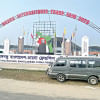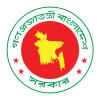Govt cuts furnace oil price by 30pc
The government has cut the price of furnace oil by more than 30 percent to Tk 42 a litre as oil prices continue to remain low on the international market for nearly two years.
The price cut came into effect last night, according to a circular from the power, energy and mineral resources ministry.
Earlier, a litre of furnace oil was Tk 60.
The prices of diesel, petrol and octane remained the same.
However, a ministry official said the price cut on the fuels would come within a month.
The finance ministry has already sent a letter to the energy ministry (in this regard), the official told The Daily Star.
Diesel prices would be slashed by Tk 10-15 a litre. The prices of petrol and octane would be brought down to a level that would allow the government to make a profit of Tk 20-25 a litre, said an official last week.
The price of diesel and kerosene now stands at Tk 68 a litre, octane at Tk 99 and petrol at Tk 96.
In the current fiscal year, the country is estimated to consume 10 lakh tonnes of furnace oil which is used in power plants and industries.
Of the requirement, privately-owned power plants will supply 5.5 lakh tonnes while state-run Eastern Refinery Ltd will produce 3 lakh tonnes.
The government will have to import 1.5 lakh tonnes (of furnace oil) in the current fiscal year, said Mir Mohammad Aslam Uddin, senior information officer at the energy ministry.
The call for adjusting oil prices on the local market has been getting louder since mid-2014 when petroleum prices started falling on the global market.
But the government was defiant against adjusting the prices to allow the Bangladesh Petroleum Corporation (BPC) to repay its loans and recoup the losses it had incurred between fiscal 1999-2000 and 2014-15.
Now that the state-run BPC has said that all its bank loans have been repaid, and that it is counting profits, pressure is on the government to reduce fuel prices.
The World Bank and the International Monetary Fund pursued the government to deregulate domestic oil prices and introduce a system that makes automatic adjustments of oil prices in line with global market rates.
However, the price cut would not be as steep as in case of international markets, as the government wants to make sure that the BPC continues to make profits.
For a litre of octane, the BPC makes a profit of Tk 45, Tk 40 for petrol and Tk 28 for diesel.
Currently, Bangladesh has installed capacity of power generation of 12,229MW. Of them, the installed capacity of furnace oil-run power plants is 2,565MW or 21 percent of the total, according to Power Development Board.

 For all latest news, follow The Daily Star's Google News channel.
For all latest news, follow The Daily Star's Google News channel. 






Comments